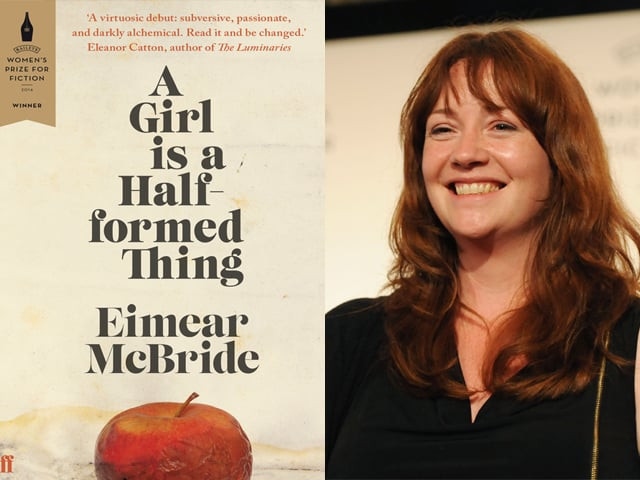With this book, McBride has made a breakthrough debut; although doing so was no easy task. It took McBride six months to write this book and over nine years to find a publisher. However, much to the chagrin of those publishers who turned this book down, soon after its publication, the book took the literary world by storm, winning all sorts of prizes and eliciting a barrage of ecstatic praise. Just within a few months, this book was being referred to as a modern classic.
McBride’s debut novel may be one of the most acclaimed novels of 2014, scooping up the prestigious Bailey’s women’s prize for fiction and the Goldsmith prize; however, it utterly failed to impress me. It is written in such a dense, intricate and convoluted prose, with ungrammatical, unpunctuated and fractured sentences. The opening paragraph of the book reads:
“For you. You’ll soon. You’ll give her. Name. In the stitches of her skin she’ll wear your say. Mammy me? Yes you. Bounce the bed, I’d say. I’d say that’s what you did. Then lay you down. They. Cut you round. Wait. An. Hour and day.”
Though at first this unusual and experimental prose might seem exhilarating and a delightful challenge to read, that might have been true if this were a 10 to 20-page short story. But as this is a full length novel, well over 200 pages, soon all the delight evaporates and all that remains is a residual daunting challenge. As you go deeper, the language becomes more obscure and eventually reading this book feels like swimming through setting cement.
There is something suffocating and indigestible about this book. Although after reading the first few chapters I did get accustomed to McBride’s haunting and eccentric language but a sense of absurdity always lingered around. When I put this book down to take a break, it became atrociously difficult to compel myself to pick it up and continue reading again. Armed with determination to continue, to unravel that oomph factor which everyone was going fanatic about, to find a reason to like this book, I continued to read it. If McBride was too determined to impress and shock the readers with her pretentious efforts and challenging language then at least she should have done so with an engrossing and powerful story.
But then again, I was in for a disappointment. The story is as conventional and banal as it gets.
A broken Irish family with a single mother and a runaway father presumed to be dead. If the language was not enough of a challenge, McBride tricked her readers once again by not giving names to any characters in the novel. The novel is narrated by an unknown girl to her brother who she always refers to as “you”. The siblings are separated by a gap of two years, with the brother being the older one. Before the girl is born, the brother is diagnosed with brain cancer which begins to spread throughout his body. As the siblings grow up under challenging conditions, their bond becomes inseparable.
The two most recurring themes in this book are adultery and the relationship between siblings. The result is that at times this book is deeply moving and has scenes that carry a powerful emotional impact. Except for that, this book is petulant, confusing and improbable. In contrast to the unordinary language, the underlying story is extremely ordinary.
I certainly do not acquiesce to the attempts to call this book “genius” or a “classic”. This book could have been written in a much simpler, readable and ordinary prose which would have done justice to its simple and ordinary story. But as these two things are evidently, wildly out of balance, the result is a lame excuse of a novel.
I might be blamed of not possessing enough intellectual splendour to fully grasp the depths of this novel, I might be labelled as an imprudent reader but I have only two advises to give you. First, do not buy this book, and second, if you can’t resist the allure of its poignant language then after you are done reading it, do not toss it away slightly. I recommend that you throw it away with great force in order to fully exhale your frustration that bottled up while reading it.



COMMENTS
Comments are moderated and generally will be posted if they are on-topic and not abusive.
For more information, please see our Comments FAQ